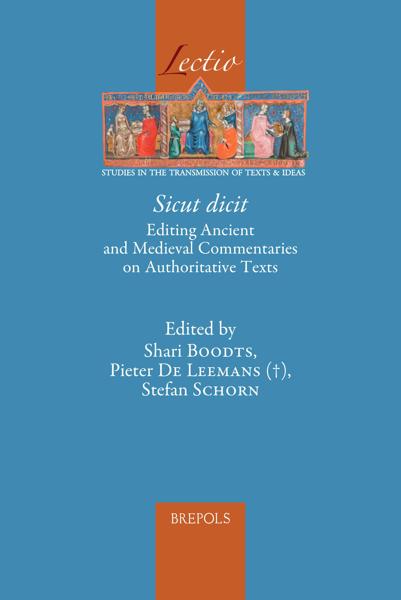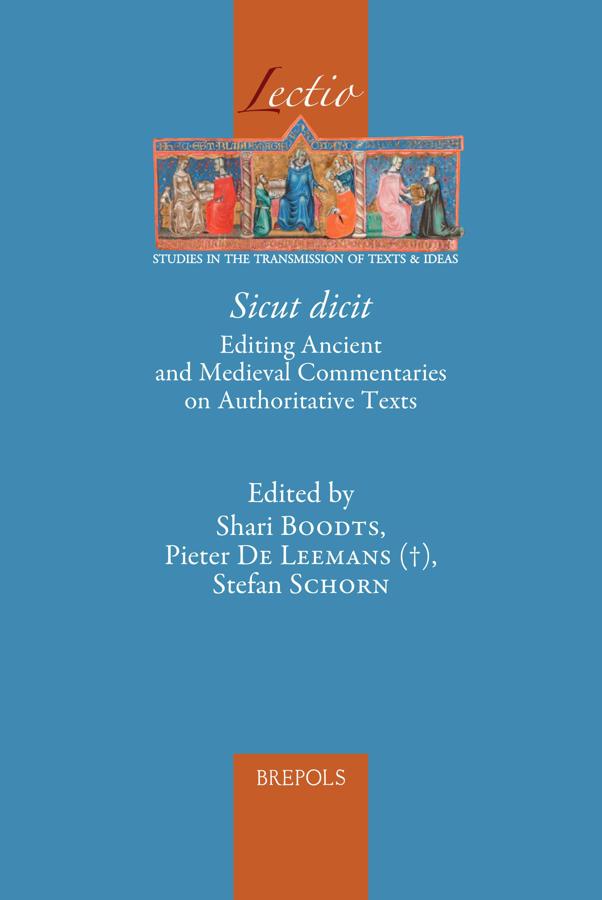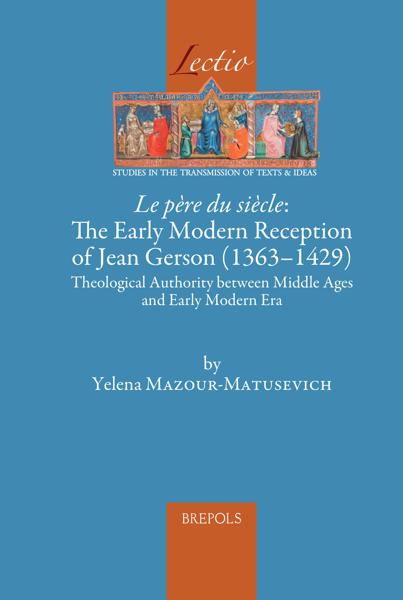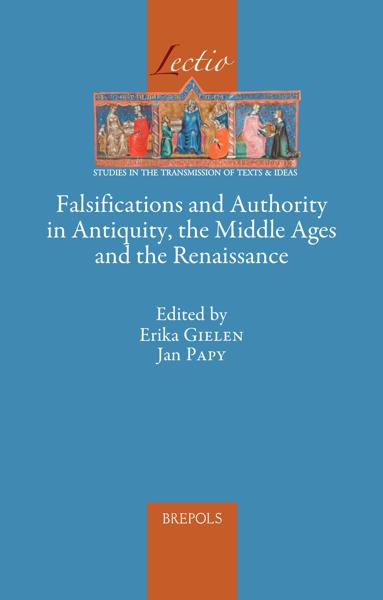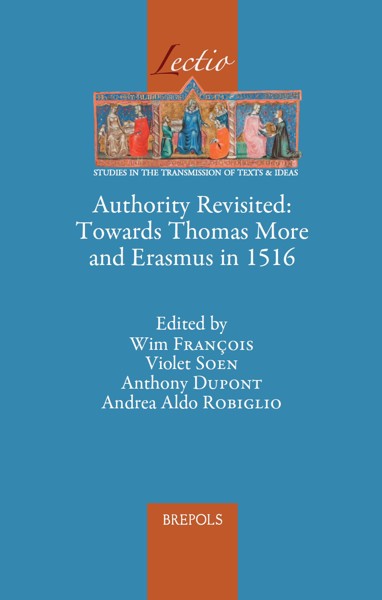
Sicut dicit
Editing Ancient and Medieval Commentaries on Authoritative Texts
Shari Boodts, Pieter De Leemans †, Stefan Schorn (eds)
- Pages: 376 p.
- Size:156 x 234 mm
- Illustrations:6 b/w, 5 col.
- Language(s):English
- Publication Year:2020
- € 100,00 EXCL. VAT RETAIL PRICE
- ISBN: 978-2-503-58649-6
- Hardback
- Available
- € 100,00 EXCL. VAT RETAIL PRICE
- ISBN: 978-2-503-58650-2
- E-book
- Available
An exploration of the methodological challenges associated with editing commentaries on authoritative texts
“Neither commentaries nor the editing process seem exactly gripping topics, but readers of this book are in for a pleasant surprise: it is one of the more interesting and engaging scholarly works to hit the shelves in recent years. The secret to its success is a focus on questions and problems more than on answers and arguments.” (Eleanor Dickey, in: The Journal of Medieval Latin 32, 2022, p. 282-284)
Commentaries on authoritative texts from Antiquity and the Middle Ages are increasingly being recognized as witnesses to a rich tradition of cultural reception and intellectual engagement. This renewed interest goes hand-in-hand with an increased demand for critical editions of the texts in question. However, the genre of the commentary presents a number of specific challenges to the editor, challenges related to the textual dynamic, the presentation on the page, and the intertwined transmission history of the commentary and the authoritative text that forms its subject. This volume brings together twelve case studies on texts written in Greek and Latin, which range from Antiquity to the Late Middle Ages. Touching upon a variety of fields, including literature, theology, philosophy, medicine, and law, these case studies offer an interdisciplinary perspective on commentaries on authoritative texts and the editors’ challenging work to accurately reconstruct and present them.
Reflections on Editing Commentaries on Authoritative Texts (Shari Boodts, Pieter De Leemans & Stefan Schorn)
Plurality of Redactions and Access to the Original: Editing John of Jandun’s Questions on Aristotle’s Rhetoric (Iacopo Costa)
Hippocrates at Montpellier (Michael McVaugh)
Textual Features and Editorial Challenges Posed by the Liber glossarum: Some Remarks on the Quotations from Augustine's De Genesi ad litteram (Marina Giani)
Editing Anonymous Voices: The scholia uetera to the Iliad (Fausto Montana)
Unlocking the sacra pagina: Editing the Biblical Gloss with the Help of its Medieval Users (Alexander Andrée)
Editing the Lemmata of Galen’s Commentary on the Hippocratic Aphorisms, Book 5 (Giulia Ecca)
Editing Lemmas in the Second Book of Proclus’ In Timaeum (Lorenzo Ferroni & Gerd Van Riel)
Helpful Interactions between Commentary and Text: Aristotle’s Posterior Analytics and Important Manuscripts of this Treatise (Christian Brockmann)
Critically Editing a So-Called “Sentences Commentary” (Monica Brînzei & Chris Schabel)
The Past, the Others, Himself: The Open Dialogue of a Medieval Legal Author with his Text (Sara Menzinger)
The Authority of Being Useful: Servius on and off the Page (James H. Brusuelas)
Papyrus Commentaries on the Iliad (Lara Pagani)
Index codicum
Index locorum
